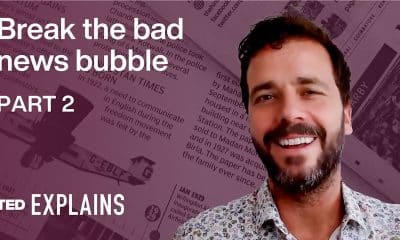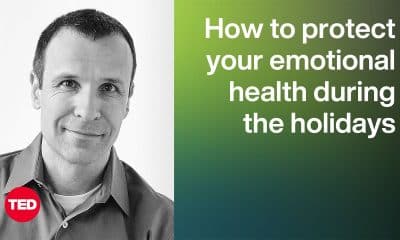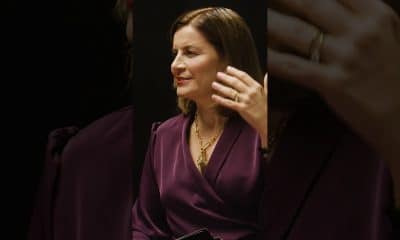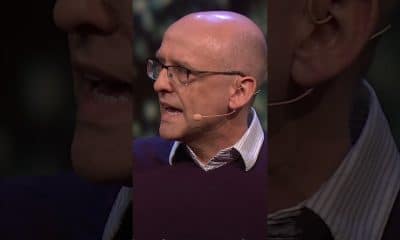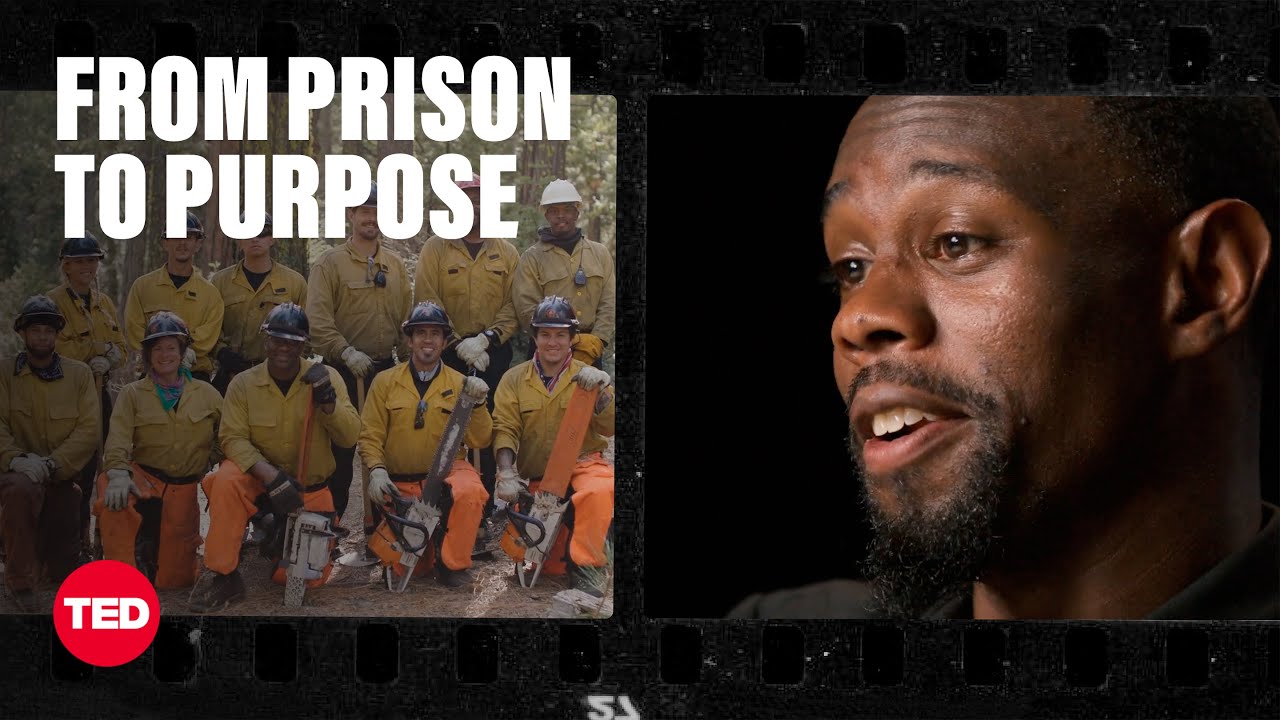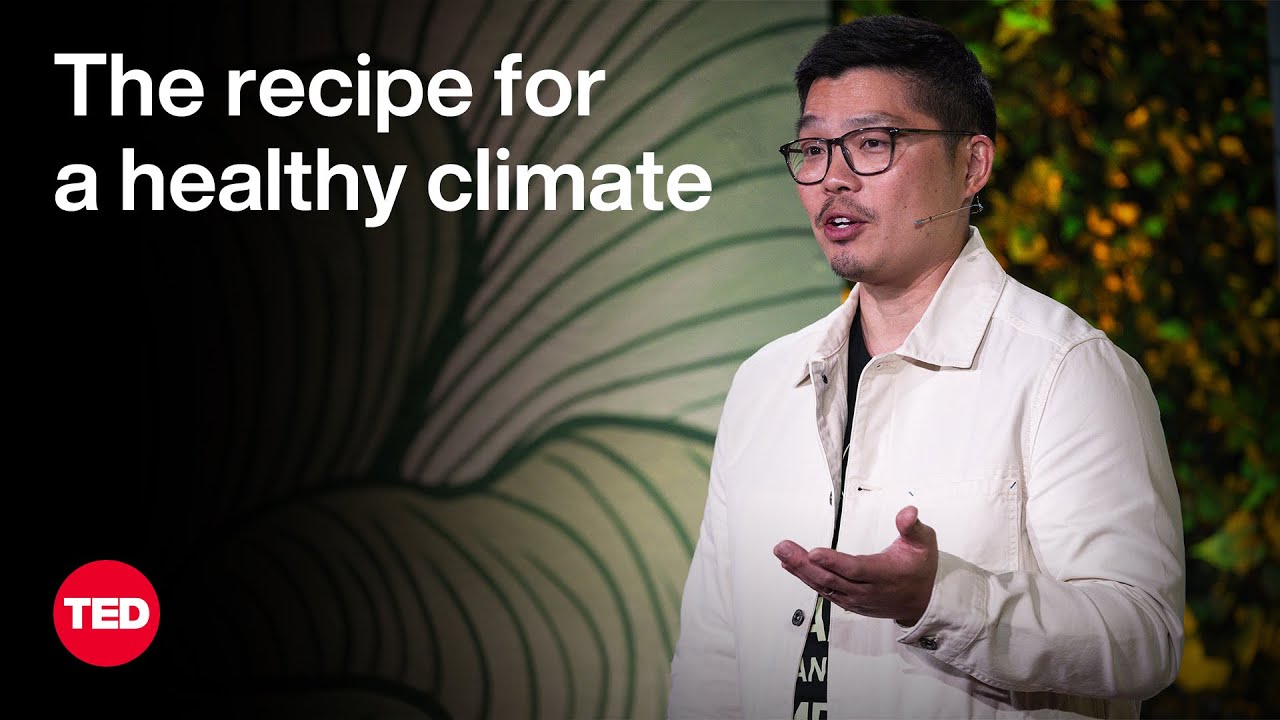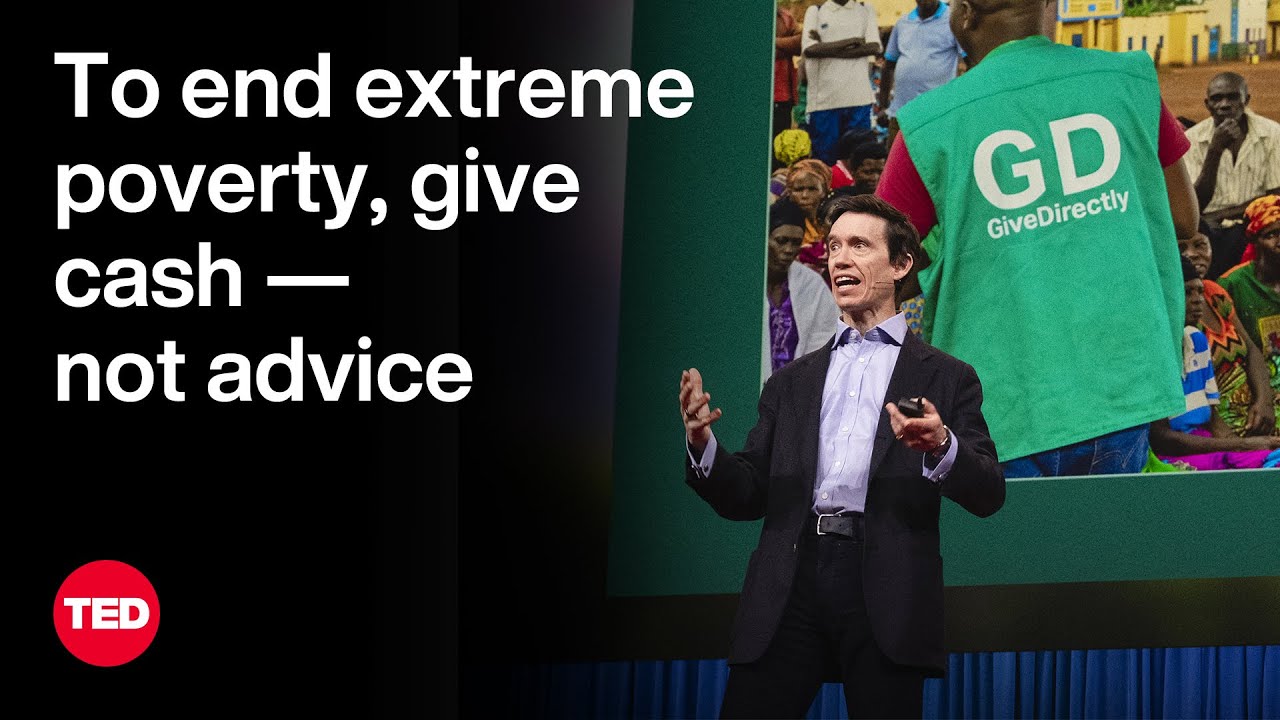Visit to get our entire library of TED Talks, transcripts, translations, personalized talk recommendations and more.
Children of immigrants in the US often experience a unique kind of guilt, brought on by the pressures of navigating different cultures, living up to their parents’ expectations and taking on extra family responsibilities. Mental health advocate Sahaj Kaur Kohli offers helpful strategies for dealing with these difficult feelings — starting with defining your own values and creating space for self-compassion. (This conversation, hosted by TED speaker development curator Cloe Shasha Brooks, is part of TED’s “How to Deal with Difficult Feelings” series.)
The TED Talks channel features the best talks and performances from the TED Conference, where the world’s leading thinkers and doers give the talk of their lives in 18 minutes (or less). Look for talks on Technology, Entertainment and Design — plus science, business, global issues, the arts and more. You’re welcome to link to or embed these videos, forward them to others and share these ideas with people you know.
Become a TED Member:
Follow TED on Twitter:
Like TED on Facebook:
Subscribe to our channel:
TED’s videos may be used for non-commercial purposes under a Creative Commons License, Attribution–Non Commercial–No Derivatives (or the CC BY – NC – ND 4.0 International) and in accordance with our TED Talks Usage Policy (). For more information on using TED for commercial purposes (e.g. employee learning, in a film or online course), please submit a Media Request at
Transcriber:
Cloe Shasha Brooks: Hello, Sahaj,
welcome, thanks for joining us.
Sahaj Kaur Kohli: Thank you for having me,
I’m so excited to be here.
CSB: I’m so excited
to be speaking with you.
So you are a mental health
therapist in training
and the founder of Brown Girl Therapy,
a community you started
to allow the children of immigrants
to speak openly
about mental health issues.
And one theme I’ve noticed
in the content you share
is the guilt frequently experienced
by people with immigrant parents.
Can you talk more about that guilt?
SKK: There’s definitely a relationship
between being a child
of immigrant parents living in the West
and experiencing guilt.
Children of immigrants
are often straddling two cultures
known as bicultural straddling.
And there’s often this expectation
to make our immigrant parents’
sacrifices and choices
for coming to this country worth it.
Many children of immigrants
feel chronic sense of guilt
for letting their parents down,
for not being enough,
for being too American,
for seeming ungrateful.
There’s also this sense
of a thriver’s guilt
or this guilt of growing, healing,
accessing resources and opportunities
that maybe our parents didn’t have
or our family and other parts
of the world don’t have access to.
So many children of immigrants
may have grown up being responsible
for their parents as well.
If we think about an immigrant’s
journey to the West,
they may not speak English well,
so a lot of children of immigrants
may act as a translator,
may help pay the bills,
may help take care of younger siblings,
so caretaking,
and we know that immigrating
and immigration
can lead to a lot of family
and generational conflict,
as everyone in the family is navigating
their own acculturation journey,
creating a sense of belonging
in the host country.
So a lot of children of immigrants
are often mediators
for cultural conflict within their family.
This responsibility
for the well-being of our parents,
whether it’s explicitly
or implicitly stated,
can be reinforced over the years
as a sense of obligation.
And it’s exhausting.
You know, children of immigrants
are often internalizing these beliefs
that they have to be a certain way,
that they have to act a certain way,
and then they’re out in the world
feeling like they’re also not enough
in the Western sense of the word.
And so it’s really important, you know,
I think in a lot of immigrant communities
and for a lot of children of immigrants,
we don’t talk enough
about questioning that guilt,
questioning where it comes from
and questioning why it’s there.
CSB: Yeah, so interesting.
It looks like we have a question
from the audience,
“Is long term guilt
ever justified or beneficial?”
SKK: So, the thing we know about guilt
is that there is healthy guilt, right?
Healthy guilt alerts us to our morality,
to the pain and hurt that we might
be causing to other people,
to the social and cultural standards
that we may have crossed.
And it can help direct our behavior.
If we’re really sitting with it,
we can understand,
“OK, you know what?
I didn’t want to hurt that person”
or “I didn’t want to do that thing.”
So that can help you
then decide to make amends,
to change your behavior, to apologize.
But then we have unhealthy guilt
where maybe the guilt that we’re feeling
is adopted through values
that we don’t necessarily hold
or boundaries that we
don’t necessarily want to hold.
So long-term guilt —
guilt is not necessarily
a negative emotion.
It’s really important to understand
that differentiation,
that guilt is something
that can really guide us.
And like any emotion,
it’s telling us something
and we must listen to it
before we decide how to handle it.
CSB: Yeah.
And in the unhealthy situation,
what are some helpful strategies
for dealing with it?
I suspect it will be relevant
to many demographics of people.
SKK: So, you know,
the thing about chronic guilt
is that it can force us to be small.
It can tell us we must stay
within the box.
We shouldn’t take up a lot of space.
It kind of encourages us
to distrust our own needs and wants,
especially if they differ
from the people around us
and our immigrant parents.
So some strategies for adopting
and dealing with guilt:
It’s really important
to question the guilt.
It’s important to identify
your parents’s beliefs and values
and then explore your own
and see how they overlap.
Ask yourself, “How can I lovingly detach
from the assumption
or belief my parent has.”
Ask yourself
if you are internalizing something
that doesn’t actually speak true to you.
Remind yourself also
that your parents are often doing
the best they can
with what they know
and what they were taught.
And with that, you have to have
a lot of self-compassion
to know that you’re figuring out
how to deal with something
that maybe no one
in your family has dealt with.
You were never taught how to deal with.
So it’s really important to show up
with a lot of self compassion.
And then the last thing
that really comes to mind here
is to accept that guilt
may always be an emotion
that you have to navigate.
It’s a warning light.
I think a lot of children of immigrants
look to guilt and feel guilt
and then say, “Oh, my gosh,
this is a sign that I need to turn around
and not do the thing I want to do
or continue on the path
I’m about to take.”
And instead, I say, sit with the guilt,
see it as a warning sign
and try to understand
where it’s really coming from.
CSB: Yeah, that’s incredibly helpful.
We have a question from the audience.
“What coping mechanisms
would you recommend
for someone dealing with guilt?”
SKK: So all of the things,
some of the coping mechanisms
I already named, you know,
it’s really important to reauthor
the narrative that you’ve been taught
that things are binary.
Something that I often see
when people are dealing with guilt
is that guilt is bad.
Again, guilt is not necessarily bad.
It’s just an emotion that is trying
to tell you something.
So a lot of children of immigrants
and a lot of people in this country
think of feelings as good or bad,
think of themselves as right or wrong,
this or that, all or nothing.
And I really want to encourage you
to question that narrative.
You know, two things can be true
at the same time.
You can pursue something
that makes you really happy,
something that is inherently
good for you, healthy for you,
and you can still feel guilt.
And so to that, I just really want
to drive home the point
that guilt is not
necessarily a bad emotion.
And it’s OK if you are always
trying to navigate it.
CSB: You know, one thing
that I’ve also seen you talk about
is how values,
getting clear on our values,
helps us manage our guilt.
Can you share more about that?
SKK: Absolutely.
Getting clear on your values
can definitely help with managing guilt.
It’s important to get clear on your values
instead of assuming that your values
are exactly the same
as the people around you.
And when you’re not clear
on what’s important to you,
it’s really easy to follow into a pattern
of what’s expected of you,
what other people want from you.
And this can lead to a lot
of people-pleasing behaviors,
it can lead to seeking approval,
maybe keeping the peace
because that’s what you’ve been taught,
but it doesn’t necessarily lead
to personal fulfillment.
So to get clear on your values,
really spend some time reflecting
on questions like what’s important to you,
when have you been the happiest?
And think about the times
that you’ve been the happiest,
and then think about values
that were being honored during that time.
When were you the most unhappy?
And think about values that might
have been suppressed or crossed.
We have to think about living
our lives with value-driven choices.
But that’s really hard to understand
if your values don’t overlap
with the people you love.
And so what I hear
from children of immigrants a lot
is “My values aren’t the same.
So then what do I do?”
And so to that, I say try to find ways
to communicate to your parents,
a lot of the assumptions and beliefs
and values our parents have,
some of them may be rooted in fear.
If they’re not necessarily happy
with a career choice that you’re making,
but that aligns with your values,
try to address the fear that’s coming up.
The fear that they have
that you won’t be secure
when they’re not here,
that you won’t be able
to make enough money,
that you won’t be satisfied
for years to come,
and try to address those fears
to communicate your values
to your parents.
CSB: Yeah, that makes a lot of sense,
especially with different cultures
and figuring all that out.
So we have another question
from the audience.
Let’s bring that one up.
“How do you recommend
that people address feelings of guilt
tied to someone who is deceased?”
From John Henderson.
SKK: That’s such a great question.
You know what I see
in the immigrant community
and with children of immigrants
that may be really relevant here
is that guilt is often tied to grief.
You know, the guilt
of feeling misunderstood,
the guilt of feeling like you can’t do
the things that you want,
the guilt of feeling
like you’re not enough
are tied to a grief of something
that you didn’t have.
Maybe it wasn’t the support
from your parents.
Maybe it wasn’t the relationship
that you really wanted.
So to that, you know, for navigating that,
I would say try to get really clear
on what it is you feel guilty about
and what it is that you’re grieving
and how you can separate those two.
And I would really recommend
seeking community and support for this
and also therapy.
CSB: Yeah, absolutely.
But we’ve come almost to the end,
if you could just say one thing
that you think would be really important
for people to remember
when they’re experiencing guilt,
what would it be?
SKK: You know, I’m going
to drive home the same point,
it is that guilt is a warning sign.
Sit with it, identify
your values and standards
that are being crossed
when you feel guilt,
identify if they are your
values and standards
or someone else’s
that you have internalized
and then try to sit with what’s important
to you in that moment
before you decide
what your next step should be.
CSB: Fantastic.
Well, thank you so much, Sahaj,
for sharing all this,
and for your wisdom.
Take care, thanks for joining us.
SKK: Thank you so much for having me.

 Science & Technology5 years ago
Science & Technology5 years ago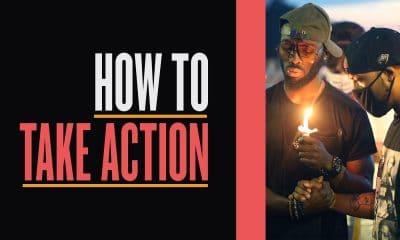
 CNET5 years ago
CNET5 years ago
 People & Blogs3 years ago
People & Blogs3 years ago
 Wired6 years ago
Wired6 years ago
 Wired6 years ago
Wired6 years ago
 Wired6 years ago
Wired6 years ago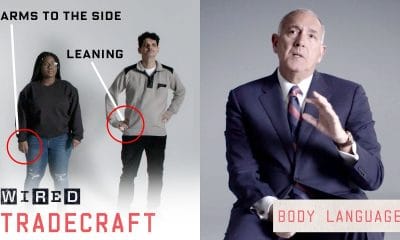
 Wired6 years ago
Wired6 years ago
 CNET5 years ago
CNET5 years ago